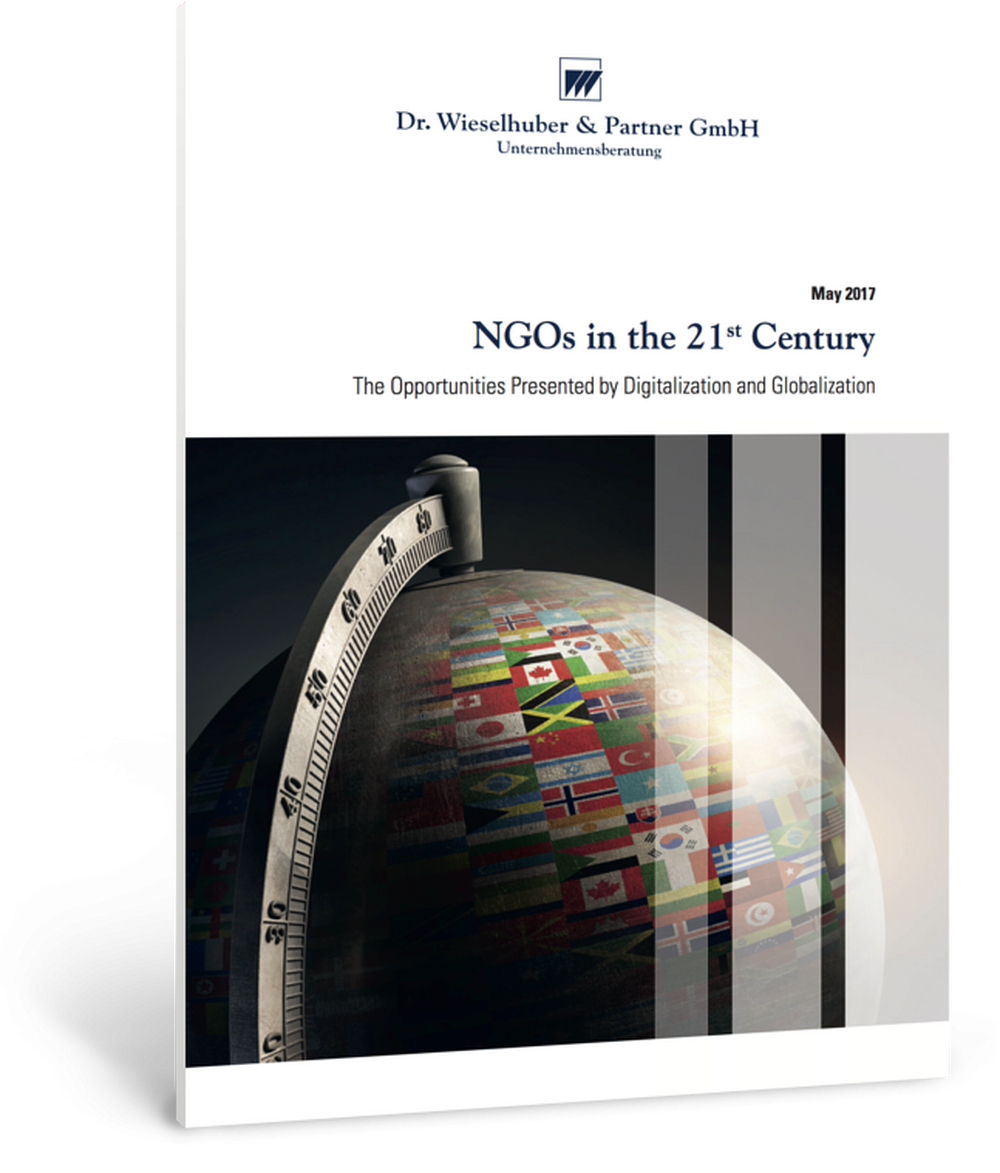In the past few decades, countless NGOs and nonprofit organizations have been established – based on the charity concept of America’s post-World War II CARE packages. This relief work began with the U.N. and NGOs redistributing superfluous items and surplus agricultural products – the overstock of an affluent society. However, in the meantime NGOs have added social and environmental components to their work. All of these activities are commensurate with the responsible commitment and values of an informed and civilized society.
NGOs have become a key stakeholder in a system that often cannot really cope with the immense tasks of an increasingly networked world – afflicted by complex conflicts, rapid climate change, and galloping urbanization. On top of this, 3 billion people currently live below or at poverty level; 1.2 billion are without access to energy, and more and more people even in affluent societies are unemployed or even homeless.
The question is whether current organizations and structures that are called to solve these gigantic tasks are truly equipped to do so, or whether it might be necessary to restructure them. Why is this vitally important?
- In charitable organizations, “business models” based on donations are often no longer competitive and are thus no longer viable.
- In recent years, while many organizations have rapidly grown and have often multiplied their “business volume,” their capacity has not kept pace, nor have they been able to keep up with the trends of digitalization and networking.
- Internal / external reporting and evaluation systems designed to meet the requirements of financial institutions have ballooned into administrational “monsters” – with many organizations now expending more energy on producing reports than on fulfilling their mission statements and thus impacting the world around them.
Successfully transforming NGOs to meet the needs of the 21st century means developing up-to-date and cooperative networks, adopting the Internet-of-things (IoT) as a concept, enabling decentralized and direct collaboration with units of competence, and developing synergies with partners. There is no reason that NGOs and social agencies cannot develop and implement new management structures, technologies, and innovative financial structures. However, charitable organizations need to realize this and have the courage and willpower to embrace new paradigms and invest in the future.
NGOs have become a key stakeholder in a system that often cannot really cope with the immense tasks of an increasingly networked world – afflicted by complex conflicts, rapid climate change, and galloping urbanization. On top of this, 3 billion people currently live below or at poverty level; 1.2 billion are without access to energy, and more and more people even in affluent societies are unemployed or even homeless.
The question is whether current organizations and structures that are called to solve these gigantic tasks are truly equipped to do so, or whether it might be necessary to restructure them. Why is this vitally important?
- In charitable organizations, “business models” based on donations are often no longer competitive and are thus no longer viable.
- In recent years, while many organizations have rapidly grown and have often multiplied their “business volume,” their capacity has not kept pace, nor have they been able to keep up with the trends of digitalization and networking.
- Internal / external reporting and evaluation systems designed to meet the requirements of financial institutions have ballooned into administrational “monsters” – with many organizations now expending more energy on producing reports than on fulfilling their mission statements and thus impacting the world around them.
Successfully transforming NGOs to meet the needs of the 21st century means developing up-to-date and cooperative networks, adopting the Internet-of-things (IoT) as a concept, enabling decentralized and direct collaboration with units of competence, and developing synergies with partners. There is no reason that NGOs and social agencies cannot develop and implement new management structures, technologies, and innovative financial structures. However, charitable organizations need to realize this and have the courage and willpower to embrace new paradigms and invest in the future.
















